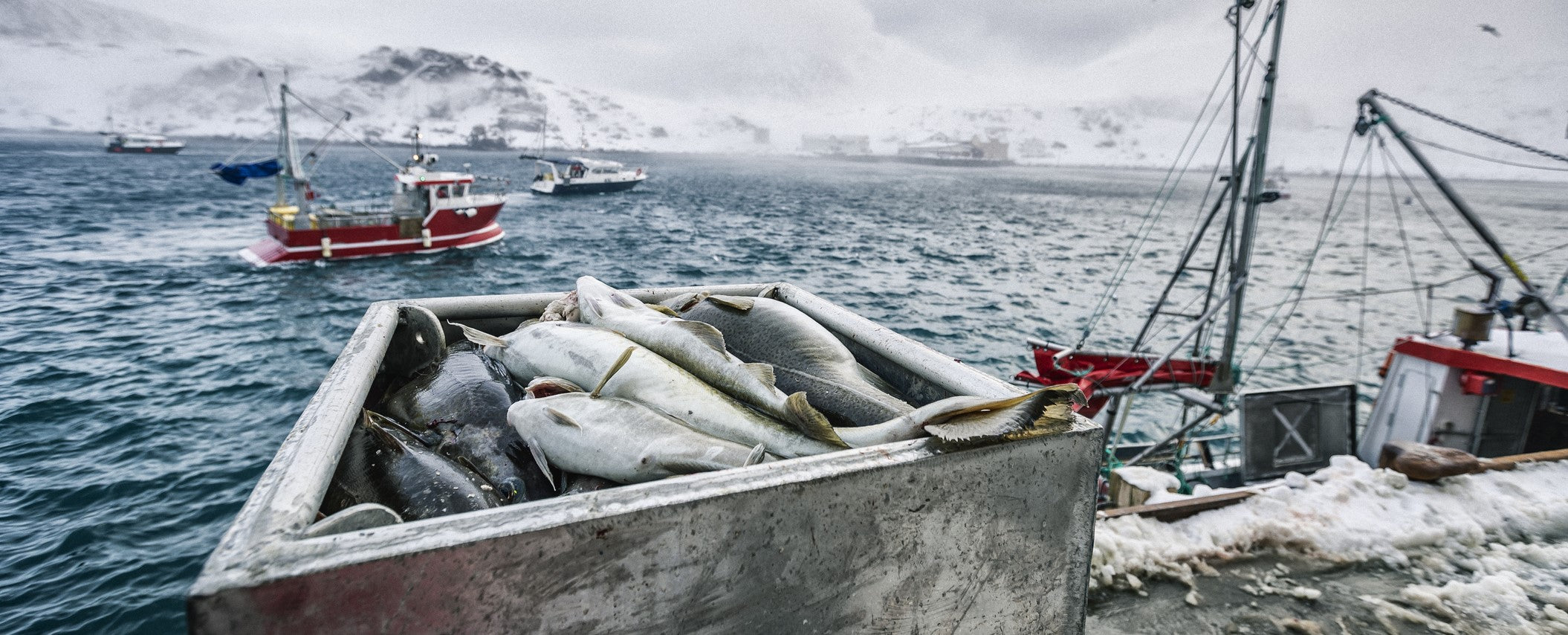Your Cart is Empty
FREE SHIPPING ON ALL ORDERS OVER $99!
FREE SHIPPING ON ALL ORDERS OVER $99!
FREE SHIPPING ON ALL ORDERS OVER $99!

At North Coast Seafoods, we understand that to help feed 9.7 billion people by 2050, the seafood industry will need to get creative. As oceans warm and acidify, responsibly-managed and overexploited wild fisheries alike will become less productive. Fishers will lose their livelihoods as fish flee to the poles.
Are these good reasons to eat less seafood? Quite the opposite. Depending on production method and distance to market, many seafoods have exceptionally small carbon footprints, smaller even than most plant-based proteins. Gulf of Maine redfish, monkfish, haddock, and pollock are all responsibly managed and, if consumed in New England, travel a very short distance from boat to plate. Icelandic cod, caught hook-and-line by fishers like Oli, is one of the most closely monitored and sustainably managed fisheries in the world.

It is by eating more seafood, then – more genuinely responsible, low-carbon seafood – that we can slow global warming and sustain abundant wild stocks within Oli’s range.
It is a dangerous misconception that farmed fish is inherently inferior to, and less sustainable than, wild. Low quality farmed fish is inferior to high-quality wild, but, by the same token, high quality farmed fish is more delicious, nutritious, and sustainable than low-quality, irresponsibly harvested wild.

Farmed shellfish, a North Coast specialty, is a nearly zero-carbon muscle-builder. Our Norwegian Atlantic salmon, owing to low stocking densities and vigorous tidal exchange, is some of the cleanest fish on the market; in contrast to beef, pork, and chicken, it boasts an exceptionally efficient 1.2:1 feed conversion ratio (FCR) and uses very little water.
Soy, by contrast, is water-intensive, responsible for tropical deforestation, and significantly less delicious than anything we sell. Pescetarianism, not vegetarianism, is the low-carbon diet that tastes as great as it feels.
In the coming months, I will elaborate on all of these topics and more. I hope to make a compelling case that, as a nation of would-be seafood fanatics, we don’t have to choose between economic and environmental vitality.
Austin would have farmed barramundi after college if he hadn't been whisked off to Singapore, where he ate a terrific quantity of steamed, broiled, and curried fish head. His mission is to sustain seafood by helping fishers, farmers, and consumers to catch it responsibly, raise it intelligently, and utilize as much of each fish as possible.
Sign up to receive the best seafood recipes, first access to new products, exclusive discounts and more!